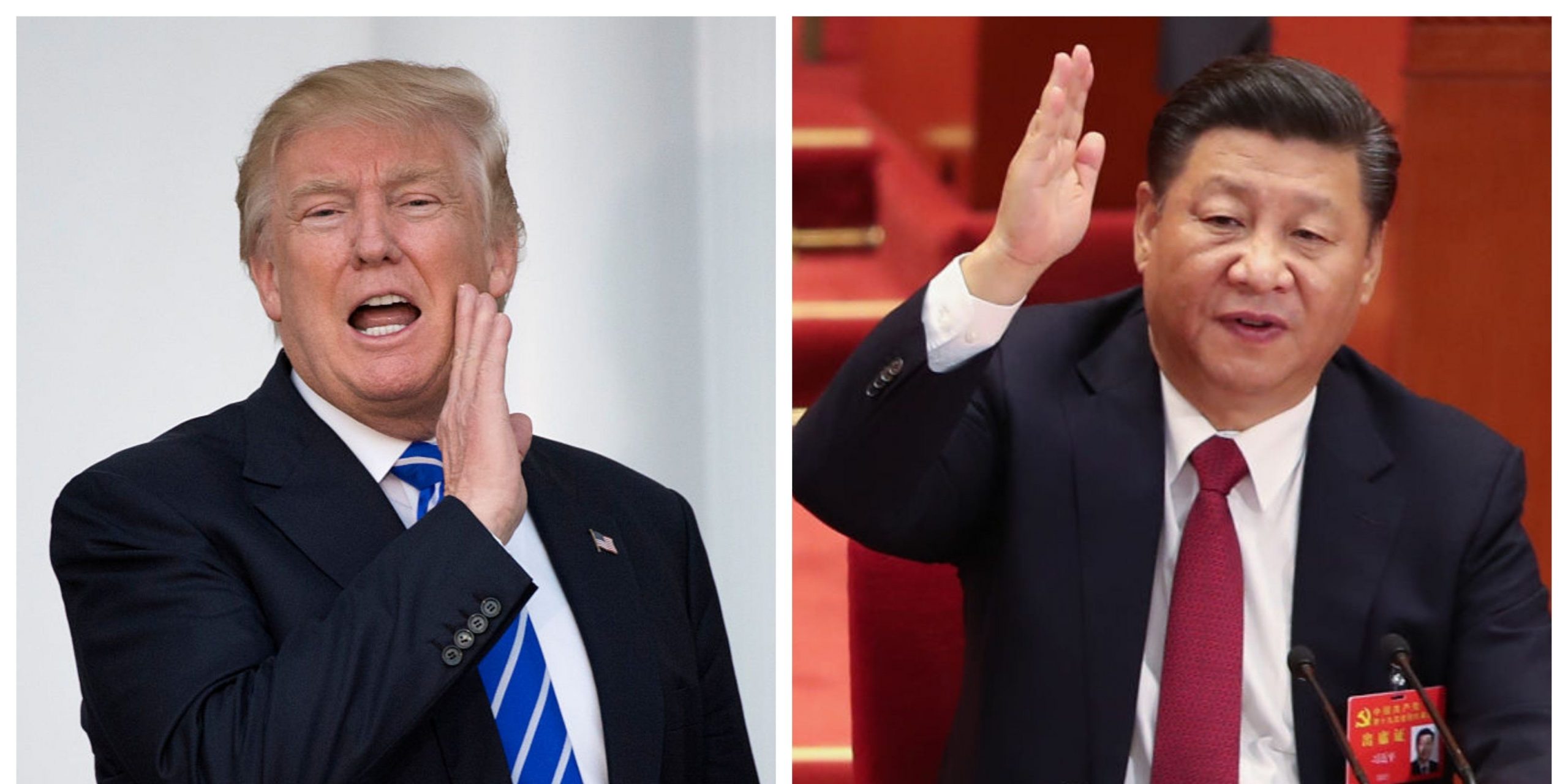- President Donald Trump expressed approval of a concentration camp for Uighur Muslims in China during a private meeting with Chinese President Xi Jinping, according to former national security adviser John Bolton’s upcoming memoir, “The Room Where It Happened.”
- Xi “explained to Trump why he was basically building concentration camps in Xinjiang,” Bolton wrote, citing the interpreter’s account.
- The interpreter added that “Trump said that Xi should go ahead with building the camps, which Trump thought was exactly the right thing to do,” according to the book.
- Visit Business Insider’s homepage for more stories.
President Donald Trump expressed approval of a concentration camp for Uighur Muslims in China during a private meeting with Chinese President Xi Jinping, according to former national security adviser John Bolton’s upcoming memoir, “The Room Where It Happened.”
In a private meeting during the 2019 G20 meeting in Japan, Trump and Xi were accompanied only by their interpreters, according to Bolton’s book, parts of which were published in The Wall Street Journal on Wednesday.
Xi “explained to Trump why he was basically building concentration camps in Xinjiang,” Bolton wrote, citing the interpreter’s account. The interpreter added that “Trump said that Xi should go ahead with building the camps, which Trump thought was exactly the right thing to do,” according to the book.
Bolton also wrote in the book that Matthew Pottinger, a retired US Marine and the current deputy national security adviser, “told me that Trump said something very similar during his November 2017 trip to China.”
The Chinese Communist Party has long been criticized for its construction of large concentration camps in Xinjiang, where millions of ethnic minority Uighur Muslims are believed to be detained under the guise of a counterterrorism campaign. Inside the roughly 465 camps in Xinjiang and the surrounding region, 2 million to 3 million Uighur Muslims are under surveillance and subject to mandatory "reeducation" training. One survivor said that people in the camps were beaten, subjected to medical experiments, and even forced to watch gang rapes.
The camps have been criticized by the White House, and lawmakers from both parties have condemned the practice. Trump walked back his reluctance to take action against China for its treatment of the Uighur Muslims and signed a bipartisan bill on Wednesday.
The Uyghur Human Rights Policy Act was overwhelmingly approved by both chambers and calls for sanctions against officials involved with the camps.
"Beijing's barbarous actions targeting the Uyghur people are an outrage to the collective conscious of the world," House Speaker Nancy Pelosi said in May. "This House of Representatives, in a very strong bipartisan way, we are sending a message to the persecuted that they are not forgotten. We're saying to the president of China: you may tell these people that they are forgotten, but they aren't."
China has continued to deny that the Uighur Muslims have been mistreated and claims that the notion "blatantly smears China's counterterrorism and deradicalization measures and seriously interferes in China's internal affairs."
"We urge the US to immediately rectify its mistake, stop using Xinjiang-related issues to intervene in China's internal affairs and refrain from going even further down the wrong path," the Chinese embassy in Washington, DC, said in a statement, according to The New York Times.
Bolton's book has sent shockwaves through Washington and the political sphere. The former national security adviser accuses the House of Representatives of "impeachment malpractice" in his memoir and says Trump engaged in far more objectionable conduct than just what he was impeached for.
In one section of the book, Bolton described how Trump "pleaded" with Xi for China to purchase US agricultural products to help him win reelection in 2020.
"He stressed the importance of farmers and increased Chinese purchases of soybeans and wheat in the electoral outcome," Bolton wrote.
In an excerpt published by The Wall Street Journal, Bolton added that "Trump's conversations with Xi reflected not only the incoherence in his trade policy but also the confluence in Trump's mind of his own political interests and U.S. national interests."
"Trump commingled the personal and the national not just on trade questions but across the whole field of national security," the former national security adviser said. "I am hard-pressed to identify any significant Trump decision during my White House tenure that wasn't driven by reelection calculations."
Bolton said the president's actions related to his China policy "formed a pattern of fundamentally unacceptable behavior that eroded the very legitimacy of the presidency."
"Had Democratic impeachment advocates not been so obsessed with their Ukraine blitzkrieg in 2019, had they taken the time to inquire more systematically about Trump's behavior across his entire foreign policy, the impeachment outcome might well have been different," the former national security adviser wrote.
